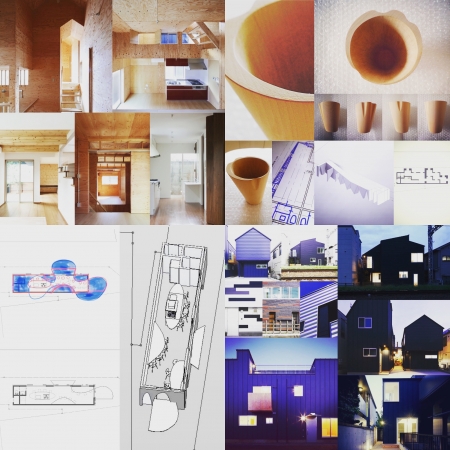人がいて完成する建築
「気持ち」という言葉を「選択する」という動きのある言葉に変換した。それは「気持ち」が判断基準になる前提であり、気持ちによって何かを判断し選択した結果が形やプランになるようなことを思い描いた。
「気持ち」を分解すると「気分」と「感情」になる。どちらも人の心に関することだが、自分の心のあり様が「気分」で、他人の心のあり様が「感情」になるという。
人が主体的に建築や空間と関わりを持とうとすることを目指しているので「気分」が判断基準になり、何かを選択することにより建築や空間の形やプランが形成される。
そうすると、形やプランはいわば二次的な産物となり、人が主体的になる。それは人がいなければ、建築や空間は完成では無いということでもある。
"Architecture completed with people"
I converted the word "feeling" into a moving word "select". It is a premise that "feelings" are the criteria for judgment, and I envisioned that the result of judging and selecting something based on feelings would be the shape and plan.
When "feeling" is decomposed, it becomes "mood" and "emotion". Both are related to the human mind, but it is said that the state of one's mind becomes the "mood" and the state of the mind of another person becomes the "emotion".
Since people are aiming to independently relate to architecture and space, "mood" is the criterion, and by selecting something, the shape and plan of architecture and space are formed.
Then, the shape and plan become so-called secondary products, and people become independent. It also means that architecture and space are not complete without people.


